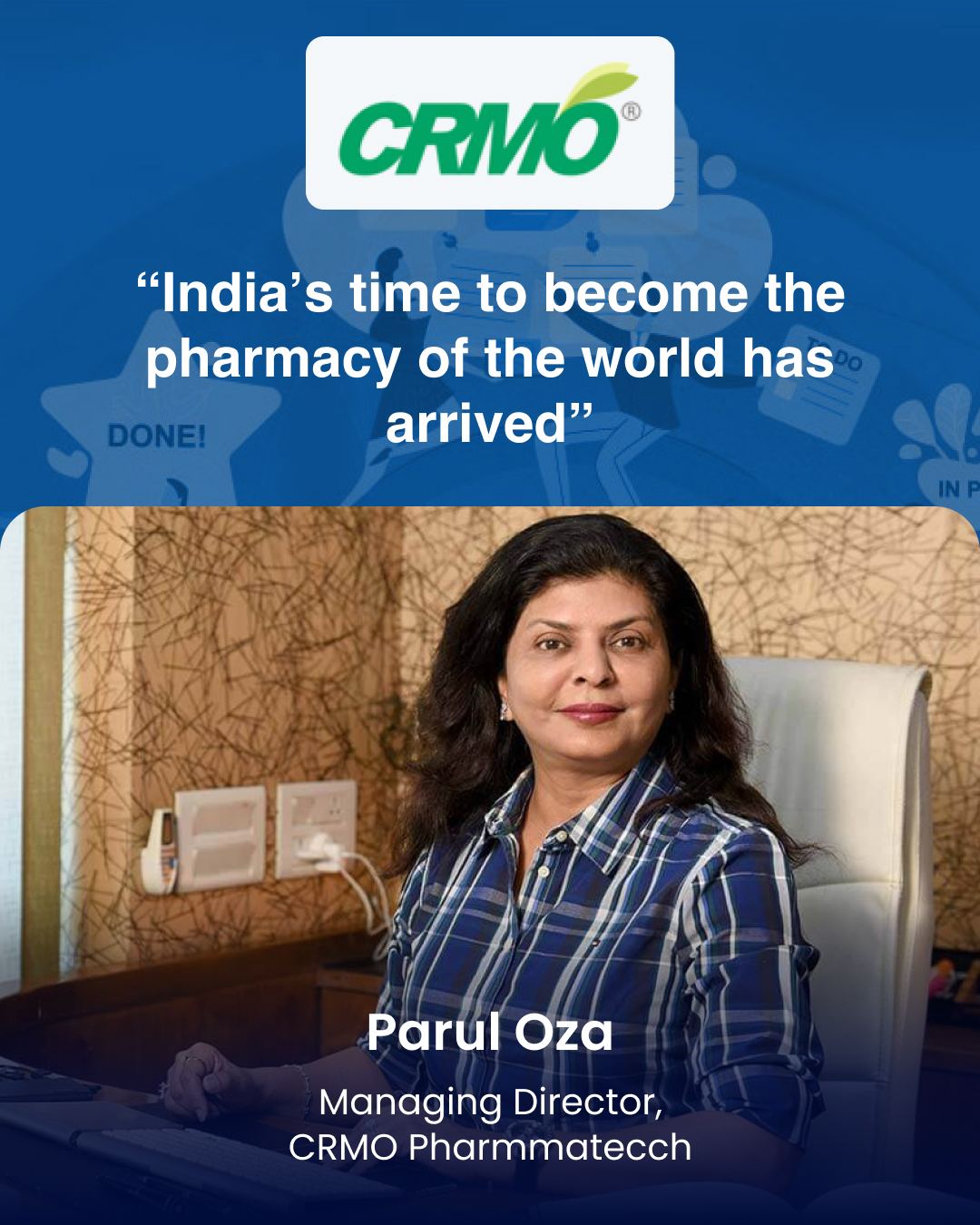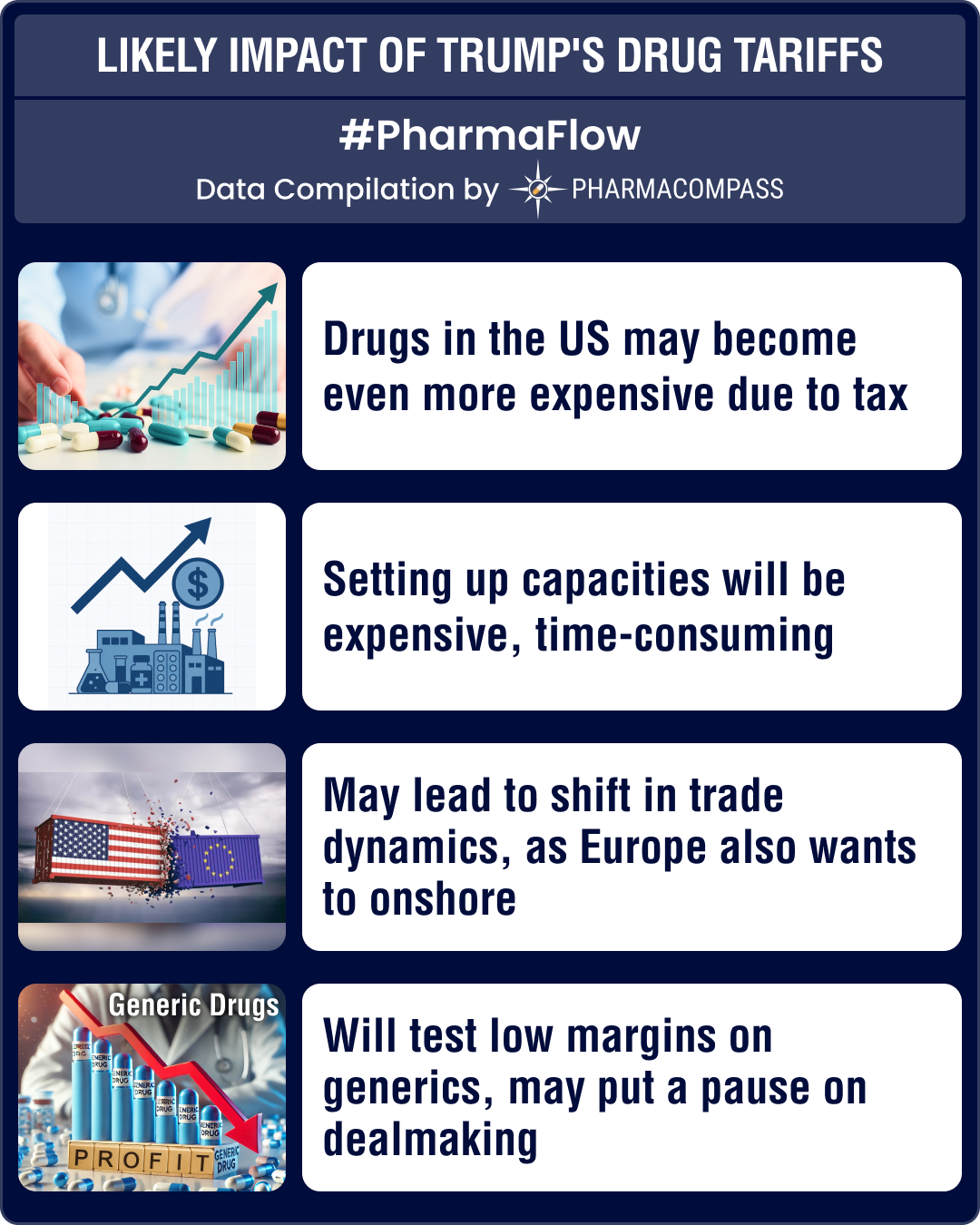
#SpeakPharma with CRMO Pharmmatecch
2020-06-23
Impressions: 6016
This week, Parul Oza is back on SpeakPharma to take us through the changes the global pharmaceutical supply chain is experiencing as a result of the Covid-19 pandemic. This time, the managing director of the Ahmedabad (India) headquartered complete outsourcing solutions provider talks about the strengths of the Indian pharmaceutical industry and how it can capitalize on the opportunities emerging in the post-Covid world.
Welcome back Parul. Covid-19 has turned the focus on the global pharmaceutical supply chain. In your view, why has this happened?
It’s great to be back on SpeakPharma. The past few months have certainly revealed the fragility of the global pharmaceutical supply chain, including how dependent it is on China.
Of late, both the US and Europe have said they want to reduce reliance on imports. Japan too is talking about shifting production home.
We saw India restrict export of 58 APIs when the crisis broke out. India has also been working on improving its bulk drug manufacturing capacity in order to reduce its dependence on China.
The Indian government has approved two schemes to promote the manufacturing of APIs.
The first scheme — Promotion of Bulk Drug Parks — seeks to develop three mega
bulk drug parks in India in partnership with states; while the second scheme — Production Linked Incentive (PLI) Scheme — seeks to promote domestic manufacturing of critical key starting materials (KSMs) or drug intermediates and APIs in India.
What are some of the KSMs/APIs that need to be de-risked out of China?
While there is a wide range of products that need alternative sources, the list of products shared by India provides a good sense of where the dependencies (on China) lie. There is dependence on China for antibiotics, vitamins, hormones and even for commonly used medicines like aspirin and paracetamol.
Under the two new schemes in India, financial incentives will be given to manufacturers of 53 critical bulk drugs on their incremental sales over the base year (2019-20) for a period of six years.
Do you see Indian companies capitalizing on this opportunity?
India can certainly become the pharmacy of the world. This policy will also help the government with its aim to attain self-reliance and drug security, while also boosting manufacturing.
India is already the leading country when it comes to filing DMFs with the US Food and Drug Administration and it also has an established inspection track record with most regulatory agencies in the world.
Before China became a global leader, India had a strong track record of manufacturing APIs and KSMs. Even today, India has a large number of underutilized facilities which are either approved or approvable. India also boasts of abundant skilled manpower and a deep understanding of process chemistry to develop novel routes of synthesis. The country has all the necessary supporting infrastructure available to not only manufacture but also to assure the quality of a pharmaceutical drug.
This is an opportunity for not just India but the global pharma industry to capitalize on reducing their dependence on China.
Is there an opportunity to produce APIs and KSMs, which are beyond these 53 critical bulk drugs?
Most certainly. As the pricing pressure continues to increase, companies with APIs that are under patent should consider Indian units for production of their KSMs.
Finding a KSM manufacturer involves stricter due diligence, manufacturing set-up and infrastructure evaluation for a given process. It is akin to developing a KSM manufacturer.
What will be the role of China in view of these announcements?
Shifting supply chains out of China will be a complex exercise. For more than a decade now, China has overtaken other countries to become the largest producer of APIs and KSMs. They have developed scale, cost efficiencies, compliance standards and skilled manpower.
When we last spoke, we shared our sartan price trends dashboard, which provided insights into how the prices of commonly used APIs such such as valsartan, olmesartan and losartan and those of their KSMs had changed since cancer-causing impurities were found in these commonly used blood pressure drugs.
Interestingly, since the outbreak of Covid-19, the prices of sartans and their intermediates are witnessing a marginal decline rather than a surge. This clearly shows that Chinese factories are active and will continue to remain competitive in the near future.
What recommendations do you have for organizations that want to set up new manufacturing facilities?
Post the sartan, ranitidine and metformin recalls, the global drug industry requires to focus a lot more attention on detail. Chemical manufacturing operations now undergo a completely new level of scrutiny. Regulatory agencies, such as the European Medicines Agency (EMA) and SwissMedic now mandate that all products manufactured through chemical synthesis undergo risk evaluation for genotoxic impurities.
While the manufacturing process is one element which introduces the risk of mutagenic impurities, there are external factors that significantly increase cross-contamination risk as well.
As most facilities will support the manufacturing of generic drugs and their intermediates, the pressure on pricing will continuously exist while regulatory compliance expectations will only increase.
In view of this, it’s important that companies make intelligent product selection decisions where they can compete at scale, have the skilled manpower along with the supporting infrastructure available to assist the project and ensure there is a laser focus on quality and environmental compliance.
It also helps to engage the services of a project outsourcing specialist with deep domain knowledge of the industry, its players and the issues involved. This way, projects are supported by a wider network of professionals and more information and expertise is made available on a continuous basis in this rapidly changing environment.
How can a company like CRMO Pharmmatecch assist during these times?
With over 30 years of industry experience, CRMO has developed an expertise in project outsourcing. We can assist with selecting the right strategic partners and having the right oversight to ensure that project costs and timelines are maintained without compromising on any quality or regulatory standards.
At CRMO we also assist vendor QA functions with the required level of expertise to ensure consistent compliance and timely responsiveness to regulatory queries.
We also provide the necessary risk assessment services to ensure GMP and non-GMP starting materials are well selected. This way, we can keep projects on track through accurate forecasting and monitoring, and ensure timely delivery of products.
It is also imperative to facilitate clear and open communication channels which are key to a successful transfer or development of any product.
We prize our focus on confidentiality so that technology transfers occur seamlessly. And over time, we continue to remain a trusted outsourcing partner for the industry.
For those interested in connecting directly with Parul, she can be contacted at paarul@crmopharmmatecch.com






